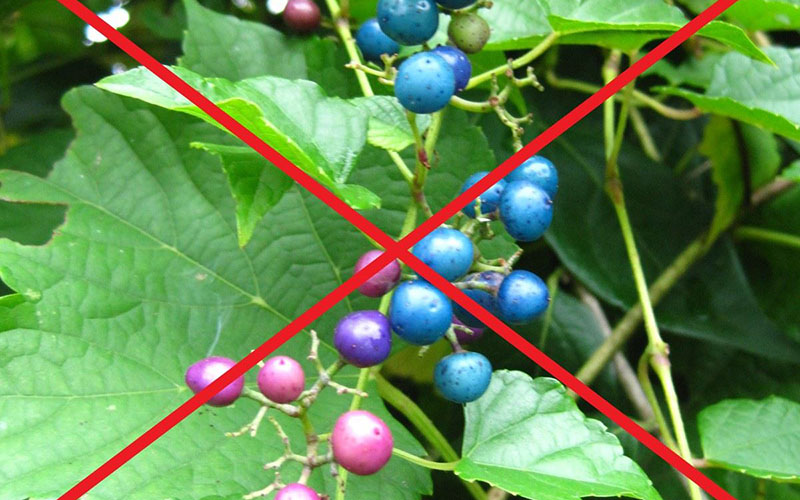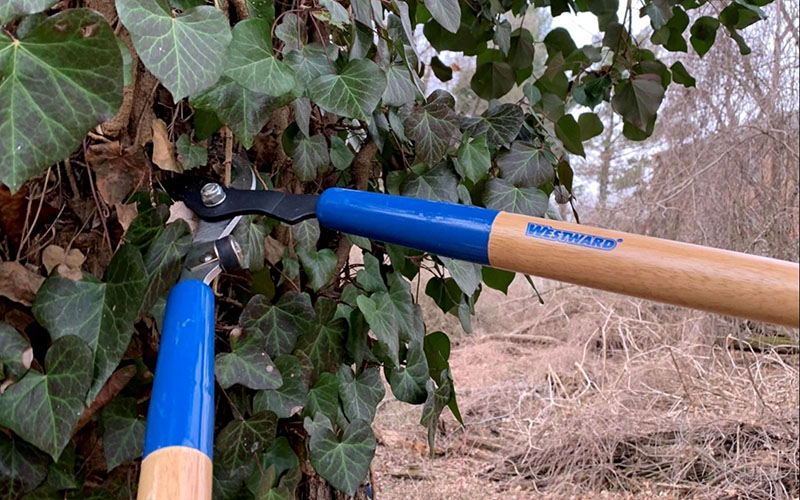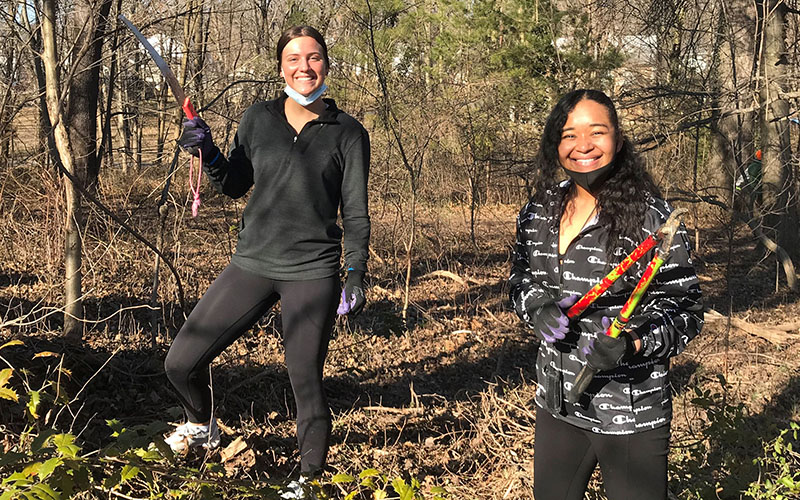Remove Non-Native Invasive Plants
About Remove Non-Native Invasive Plants
Local wildlife like birds, butterflies, salamanders, and bees rely on native plant communities for habitat. But habitat loss and fragmentation due to development, non-native invasive species, pollution, and climate change mean wildlife is struggling.
Non-native invasive (NNI) plants are introduced, either purposefully or accidentally, into a new area where they lack the natural relationships and predators that keep them in check. NNI spread rapidly from man-made settings into the wild where they displace native plants, destroy wildlife habitat, and drastically alter our parks, forests, and stream valleys, making them less resilient to the effects of climate change. Removing, and not planting, non-native invasive plants will help improve biodiversity and create more resilient greenspaces.
Help Manage Non-Native Invasive Plants

Don’t Plant Non-Native Invasives
Before planting something in your yard or sharing plants with neighbors, check the resources below to make sure it isn’t on a non-native invasive list. Plant native trees and flowers instead to help local birds and butterflies.

Remove Non-Native Invasives from Your Property
Removal methods depend on the type of plant and its growing cycle. Use the resource links below to identify and find the best removal method for a particular plant. Avoid spreading seeds and berries from invasive plants as you remove them and don’t dump yard waste in streams, parks, or other public areas. Not only does this increase the spread of non-native invasive plants, but it contributes to drainage issues, flooding, and pollution in local streams.

Volunteer in Rockville Parks
Join volunteer leaders for a public workday to help restore local biodiversity and remove non-native invasive plants from Rockville parks. Find event dates at https://www.rockvillemd.gov/become-a-weed-warrior/.
Visit the Montgomery Parks Weed Warrior Program for details on non-native invasive training, certification, and Montgomery Parks removal events. The Montgomery Parks Weed Warrior training and certification requires that you commit to removing invasive species in Montgomery Parks. Invasive plant removal workdays in the City of Rockville are not affiliated with Montgomery Parks.
Non-Native Invasive Plant Lists and Resources
Use the resources below to identify non-native invasive plants and find recommended removal methods.
 Introduction to Invasive Plants in Maryland (UMD)
Introduction to Invasive Plants in Maryland (UMD)
 Invasive Plants to Avoid Buying (UMD)
Invasive Plants to Avoid Buying (UMD)
 Removing Invasive Plants and Planting Natives in Maryland (UMD)
Removing Invasive Plants and Planting Natives in Maryland (UMD)
 Plant Invaders of Mid-Atlantic Natural Areas (NPS)
Plant Invaders of Mid-Atlantic Natural Areas (NPS)
 Invasive Species of Concern in Maryland (MISC)
Invasive Species of Concern in Maryland (MISC)
 Homeowners Guide to Managing Invasive Plants (Maryland DNR)
Homeowners Guide to Managing Invasive Plants (Maryland DNR)
contact
Jump To
Contact
Public Works Department
Environmental Management Division
240-314-8870
environment@rockvillemd.gov
Hours
Monday – Friday
8:30 a.m. – 5 p.m.